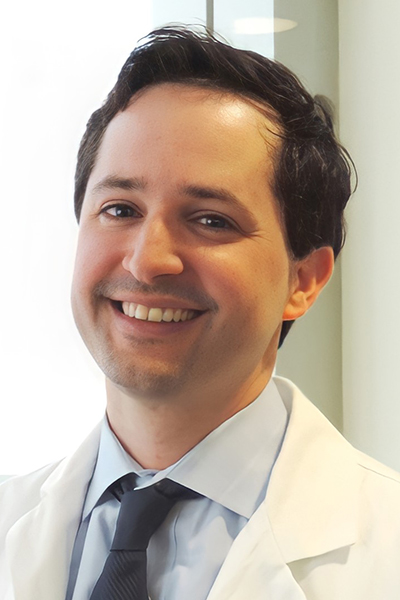An afternoon session on Saturday, November 12, will delve into the intricacies of a disease identified more than a century ago but for which relatively little progress had been made until recently on either the research front or clinical front: relapsing polychondritis.

“There are loads of patients who have this disease, who are suffering from it, because we don’t have enough medical knowledge to be able to diagnose and treat the disease effectively,” said Peter Grayson, MD, MSc.
He is among the featured presenters for The Ears Have It: Autoimmune Hearing Loss and Relapsing Polychondritis, from 3–3:45 p.m. ET, in Terrace Ballroom IV of the Pennsylvania Convention Center. ACR Convergence participants have the option to attend the session in person or on the meeting website via livestream, or to view the session on demand.
Relapsing polychondritis causes inflammation that targets cartilaginous structures, such as the ears, along with other systemic manifestations, and one of the major problems that can result is hearing loss. But it is far from the only symptom patients can experience.
The disease affects the entire body. And while ear involvement is common, it is not a certainty, nor does it look the same in every patient, said Dr. Grayson, Chief of the Vasculitis Translational Research Program and Acting Director of the National Institute of Arthritis and Musculoskeletal and Skin Diseases Rheumatology Fellowship Program at the National Institutes of Health (NIH).
“Most people think that ear involvement in relapsing polychondritis is inflammation and swelling of the external ear that spares the lobule and leads to the cauliflower ear,” he explained. “That is true, but it’s only true for a minority of patients. There’s actually a much wider range of presentations that can occur. Unless physicians remain open-minded about the full spectrum of disease, they may miss the diagnosis.”
In 2020, Dr. Grayson was part of the NIH team that discovered a new disease within relapsing polychondritis, VEXAS (vacuoles, E1 enzyme, X-linked, autoinflammatory, somatic) syndrome, which can cause inflammatory and hematologic symptoms
“There are a group of patients with relapsing polychondritis who are older men who actually have a genetic disease caused by a somatic mutation,” he noted. “Part of the talk will be keying physicians in how to clinically recognize this important subset of patients because treatment for these patients is very different.”
Another speaker, Andrea Vambutas, MD, FACS, will share new insights into sensorineural hearing loss. She is the Senior Vice President and Executive Director for Otolaryngology Services, Northwell Health, and Chair of Otolaryngology at the Donald and Barbara Zucker School of Medicine at Hofstra/Northwell.
Register Today for ACR Convergence 2025

If you haven’t registered for ACR Convergence 2025, register today to participate in this year’s premier rheumatology experience, October 24–29 in Chicago. All registered participants receive on-demand access to scientific sessions after the meeting through October 31, 2026.
